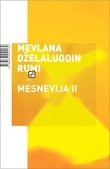What do you think?
Rate this book


316 pages, Paperback
First published January 2, 1270
"This world’s a playground and the night is death—
You go home empty-handed, out of breath."
"I am the touchstone which detects real gold.
I give God’s test to dogs and lions too,
Like gold and counterfeit—I see what’s true.
How can I ever blacken gold that’s real;
Like money-changers I can only deal:
I guide to goodness every passer-by,
And break of only branches which are dry."
"Since I’ve transcended all thoughts, I am now
Racing beyond the questions ‘why?’ and ‘how?’
I rule thought and don’t follow its instruction:
The builder has control of his construction"
"From all this art and wisdom all I gain
Is headaches and vain fancies in my brain!’
"For meaning’s open to interpretations,
And idle whims spring from loose estimations;
But inner truths which are made manifest
Can’t be interpreted, unlike the rest.
When each sense is the slave of that first sense"
"Names are nests, knowledge birds that live therein"
"So many times I tried to use my brain,
But now I’ll seek the fruits of being insane!’
"The self is Nimrod; spirit is God’s Friend:*
The self needs signs; spirits can view the end.
Signposts serve those still traveling, since they
Inside the desert often lose their way.
The eyes of those who’ve reached the destination
Don’t care for signposts to another station;
If such a man refers to signs, it’s so
The scholars too can have a chance to know:
A father for his child makes baby sounds,
Even if his own knowledge knows no bounds"
"Till turned to gold, copper no flaws can see;
Till made king, one can’t measure poverty."
"The shaikh could read this person’s thoughts with ease—
Hearts are the jungles which this lion sees:
He enters in their hearts like hope and fear;
The secrets of the world to him are clear,
So guard your hearts, you useless slaves of greed,
When near the masters of your hearts—take heed"
"How hidden things are brought to view, my brother!
Like fickle women you love flattery"
"Worse than a woman is your carnal soul,
For she is just a part, while it’s the whole"
"An Indian burnt his mirror when in pain,
“This makes men’s faces look black!” he’d complain,
“It’s not my fault!” the blameless mirror said,
“Blame the one who has polished me instead!
He made me tell the truth"